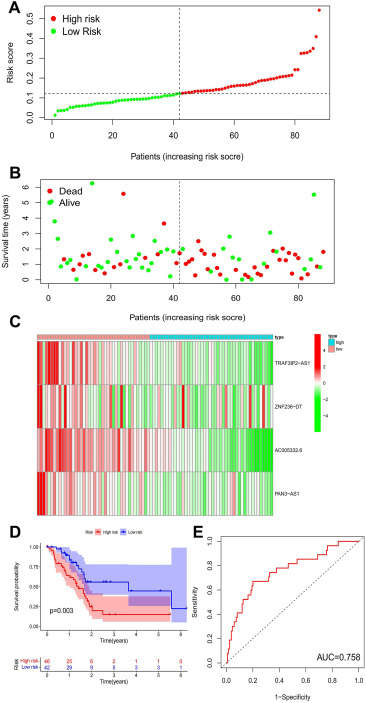
A prognostic model of patients with pancreatic cancer based on four N6-methyladenosine-related lncRNAs and analysis of related immune infiltration


Pancreatic cancer is one of the most lethal malignant tumors in the world. Despite advances in diagnosis and treatment, the five-year survival rate for pancreatic cancer patients remains only 9%.1 Pancreatic adenocarcinoma (PAAD) belongs to pancreatic cancer, which occupies 85% of the whole pancreatic cancer.2 Reversible modification of N6-methyladenosine (m6A) has been shown to be involved in cancer progression, resulting in up-regulation of oncogene expression or down-regulation of tumor-suppressing genes and may affect the prognosis of patients with pancreatic cancer.3 In pancreatic cancer, increasing evidence suggests that aberrant expression of lncRNA is related to tumor cell proliferation and metastasis.4,5 Although m6A can regulate lncRNA formation, the role of m6A-related lncRNAs in PAAD remains unclear.
